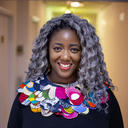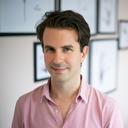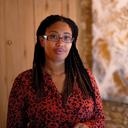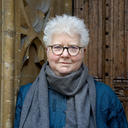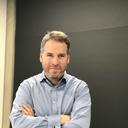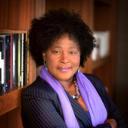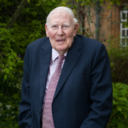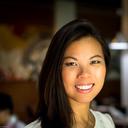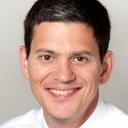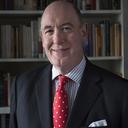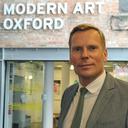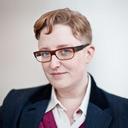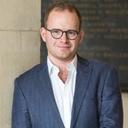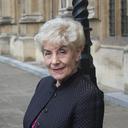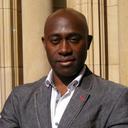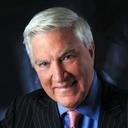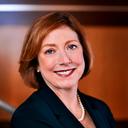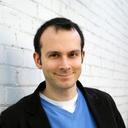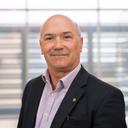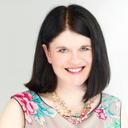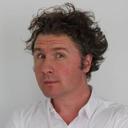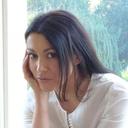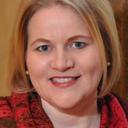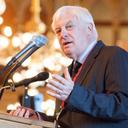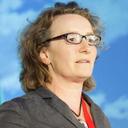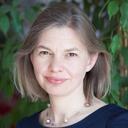ALUMNI STORIES: 'DOORS HAVE BEEN OPENED TO ME THAT I WOULD NEVER HAVE DREAMT OF'
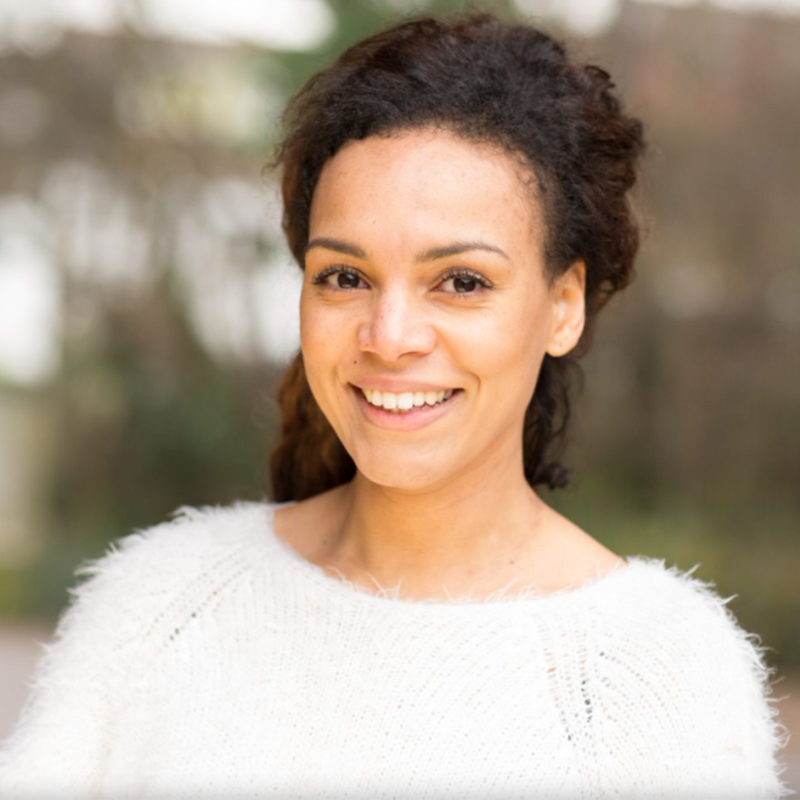
ALUMNI STORIES: 'DOORS HAVE BEEN OPENED TO ME THAT I WOULD NEVER HAVE DREAMT OF'
Explore the Oxford journey, career, and aspirations of Catherine White (St Edmund Hall, 2016): actress, author, filmmaker, UN gender advisor and founder of Kusini Productions; a platform for empowering black women through film
Published: 18 October 2023
Author: Tiya Muluzi
The Alumni Office had the opportunity to chat with Catherine White, an actress, author, filmmaker, and UN gender advisor, as well as the founder of Kusini Productions (kusiniproductions.com).
During our conversation, Catherine who comes from a state school background, shared insights about her Oxford experience, underlining the importance of practicing interviews and believing in youself to thrive at the University.
Her academic journey in women's studies at St Edmund Hall inspired her to explore the profound role of food in Caribbean culture, tracing its history from post-slavery to Beyonce's 'Lemonade' album. Catherine ventured into filmmaking and acting, creating 'Fifty Four Days,' a film that addresses grief and the underrepresentation of black swimmers.
Her advocacy played a pivotal role in securing approval for SOUL CAP swim caps for the Tokyo Olympics, promoting inclusivity. In her role as a UN Gender Advisor, Catherine introduced 'Change Makers,' a program empowering girls aged 11 to 18 in leadership and mental health.
In 2022, Catherine was named in the Forbes 30 Under 30 list. She reflected on this achievement, emphasising its testament to her impact in the entertainment industry as an actress and her work with her production company.
Catherine is currently working on a short film adapted from her book, 'Daughter,' scheduled for release in the US in 2024.
Read the full interview transcript below.
00:12 What prompted you to study at Oxford?
00:16 Well, firstly, I'd actually applied at undergrad and didn't get in. I had my interview, and I interviewed at Christ Church, which I didn't know at the time was also like one of the in theory, one of the kind of scarier colleges to interview at. I had an amazing time, but I didn't get in, but it was still always something I had in the back of my mind, like one day. It just always been a dream. Like I sort of fell in love with Oxford from like books I'd read, and the idea of being able to study at this kind of institution was just, and it never really left my mind, even though I, you know, I did my undergrad at Warwick, had a great time.
Then when I was applying for my masters, I'd been working at the UN for about a year, doing an internship. They'd offered me a contract, a job as a contractor. I knew I wanted to have a masters and I wanted to kind of be more qualified so I could have a proper job and not be a contractor forever. So I applied to SOAS for gender studies and Oxford for women's studies, and they're really different courses. So the SOAS course was much more in line with the work I was doing at the UN, so it was kind of more in the development world, whereas Oxford was much more in the humanities. But I also had this thing in the back of my mind where I was like, do I know for sure that I want to work for the UN? Because I was thinking about acting and writing and all those things. I thought, I just know that if I just feel like Oxford has opportunity, that was just the word. I was like, it has opportunity. And whether it means that I like carry on down that same path or whether it means I try something new, I just think I'm gonna, there's so much waiting for me to discover. So, I mean, it was also never really, it was never really in question. I was always going to choose Oxford, but I think I was like, I gave it the thought. I really thought, you know. So, I says this to offer. But yeah, so there were lots of reasons, I guess, childhood dream and also what it has to offer in terms of, yeah, opportunity.
02:20 What are some of your favourite memories at Oxford?
02:24 Yeah, I mean first thing that came to my mind was just getting on my bike from Norham Gardens where I lived with my friends in our formal gowns and heels cycling to formal hall and having those amazing long dinners where you meet people and you talk to people that are from such a different world to you also all the plays. I think I did five or six plays just in a year different roles and getting so involved in that and my academic advisor saying you know what you're doing, I was like don't worry I've got this and I did, I did have it all under control but just having that chance to really dive into into that but also just being in Oxford and like having classes and tutorials in these beautiful rooms like when we're in today and properly being able to just yeah like do what I love like read and it was all to do with yeah with feminism and women and gender equality and it was just like this space where I was able to dedicate everything to to doing what I loved yeah.
03:31 What is your experience transitioning to Oxford from a state school, and can your offer advice to fellow students on a similar journey?
03:35 I think there's so much of it now where I think that first that interview process when I was 18 and was coming from like this school in Northampton, I think there was a disconnect between what I knew from my school and what I suppose the interview process might have required like just in terms of yeah I didn't even I think even just feeling prepared for that in in my mind, if I could speak to someone like an 18 year old now or I'd encourage them if it's possible to try and have those practice interviews I know all the private schools do that kind of thing and you know that wasn't that wasn't an option for me, but I think that who knows what difference that might have made, but I think also it's just about not feeling that you don't belong like knowing that you have as much right as anyone else to be there if not more because actually if you're from a state school and you find yourself getting those top grades and getting into Oxford then you've in a way I think you possibly no one deserves a place more I don't mean that, but you've you've gone through a lot more to get there so not feeling like I'm from this school or I'm from this town or Village or wherever and therefore it's embarrassing just holding your head high and knowing that you've got something really unique to bring, I think that is a really important thing it's so easy to kind of dim your light and feel that you know you don't know what anyone's talking about when they speak about these schools that they went to but I also found maybe it was different as a postgrad but I didn't really feel that, I didn't feel too much that sense of not belonging I really did just think I'm here and I want to make the most of it and I don't want to let anyone talk me out of that and they didn't I think if you go into it with that attitude then people will treat you accordingly so just yeah hold your head high and know that you were there for a reason and just you know do everything you can to make the most of that and when you're still at school just yeah knowing knowledge is power so take all the knowledge you can even if it's just asking a friend to like interview you just so you've had a practice of speaking about your subject I think is really really important.
05:48 Tell us about your thesis
05:50 Yes so because my women's studies was interdisciplinary so it was languages and history and philosophy and english learning all of these different subjects so I kind of knew that I wanted to bring everything together in terms when I was trying to decide what to write my thesis on at first I thought I wanted to write about kind of identity for Congolese women because I just spent a summer in the DRC so I had this idea but I couldn't quite find that supervisor and I also there was something about it I thought I just I want to be a bit more creative with this and I quite like writing things not necessarily the traditional way and I was very interested at the time and still I'm in kind of the mechanisms of food and how food especially in Caribbean culture can be a means of reclaiming power I suppose among women and lemonade Beyonce's album had just come out which kind of looks at that as well and I had all these things in my mind and I just thought there's something in this that I could kind of trace the journey of food as a means of resistance and I could start you know I was trying to decide where to start I started with the Aunt Jemima figure who came at the end of slavery and bring it right to the present day which was Beyonce's lemonade but then of course because Beyonce's in the title I had to go through a whole process of persuading people that this was about this topic and it was academic enough um but once I kind of made my case they got really on board with it and it was so thrilling to be able to like literally bring Beyonce to life and look at how she's carrying on this whole lineage of yeah women who have resisted through cooking and through food and through you know uplifting themselves making making a better social and economic situation themselves it was so exciting and then to be able to like get such a high first from that when I had to save them in the first place and I think they've said at the time as one of the highest first they've ever given it so thrilling out so I'm very proud of it. I want Beyonce read it one day.
07:59 What inspired Kusini, your production company?
08:02 So as an actor as an actor first and foremost and obviously love that and it just sort of just started working after graduating and done a couple of plays and it had been brilliant and I was really enjoying what I was doing but I guess I always had that thought of there are stories there are stories there are stories I want to see told they're not necessarily being told but not thinking I could ever be someone to tell them but then, as lots of things I think happened during the time of pandemic, COVID happened and I think I was about to go into a job in the West End which you know I got shut down and I was kind of just left thinking about those stories again stories I want to see told and suddenly not working as an actor are still working for the UN but not working as an actor I sort of thought about how I could do something to bring those stories to life, so start making a short film about it's kind of inspired by the life of Dido Elizabeth Belle who was the first ever biracial arrest and she kind of grew up in the 18th century and has a really fascinating story in her own right got inspired by that and started making this short film and then along the way I realised that I have quite a few other ideas and it's not just about films but also how can I bring together I guess oh it was a platform for empowerment and celebration of marginalised voices especially black biracial women and girls but bringing that was together so it kind of made sense to found the company just to put everything under one roof so had about three films in the first year and then also kind of a fund which was for different projects which would make an impact on a small scale like in the community around you so just had three different grants of 500 pounds but with the idea being that often it feels so hard to know where to start you know and it's that can be overwhelming so you just think I don't know what to do so I'm not going to do anything whereas this was specifically saying it doesn't have to be you're gonna have to change the world just maybe you change the lives of five people in your community and that was so incredible seeing that come to life and from there yeah we've I don't know how many films we've made down there it's taken on a whole new piece of life I think I never imagined it would I wouldn't have thought I'd still be running a company among all the other things but yeah I'm very proud of it very proud of it.
10:31 Tell us about your film 'Fifty Four Days'
10:34 Yeah yeah that film that's the first film that I wrote and directed as well as produced because everything else I just produced and it yeah it was born out of true events so I lost my uncle and then I lost a friend directly a year apart my uncle was just kind of just before that first lockdown and my friend Simon was in the middle of between the second and the third and for both of them because of the situation we were in we couldn't set we couldn't grieve we couldn't go to a funeral of either of them and I just got really I was just lost really really, it was a really bad time really really a difficult time um but living I was still living in Oxford at the time and to live near Hinksey Lake and on one of those daily walks that you're allowed to every day I was walking past the lake and I just had this sense it honestly felt like someone was just talking to me and saying just get in as I did and it was really cold as February or March but I felt it start to unlock something in me it became a process of just I would swim every morning and by doing that I started to be able to kind of dislodge I remember feeling like I had something in my chest and I couldn't get out and it started to dislodge and then I guess I began to kind of make more sense of what happened because with suicide there's so many unanswered questions but it doesn't feel like a normal grief process yeah I started to feel better and I think that made me think you know I never saw a narrative about what happens after you lose someone's suicide I always saw suicide as the end of the story like the big dramatic finale if you think of films like A Star is Born or show is like 13 Reasons Why, it didn't speak to how that experience really felt for me, so I wanted to make something that would be hopeful. I'm also an ambassador for PAPYRUS which is the UK's National charity for suicide prevention for young people I wanted to work with them I wanted to make something that would not only remind people who are struggling that there is hope but also there would be a comfort to people like me who are left behind because actually their statistically more likely to go on to take their own lives as well which is something I don't know about yes I had the idea and like it happened quite quickly but realised I could sort of adapt that story and wrote this film 54 days about a young woman who starts writing after she loses her dad in the film um but also realising there's a whole narrative around black people swimming as well like there's this whole the statistics that 95 of black adults in the UK don't swim 95 percent and just thinking about that and it's not even about I mean it's a safety thing if nothing else but it is also what that did for my own mental health that dark time and to think that that's so inaccessible to so many people so just wanting to also challenge that narrative and yeah I worked with SOUL CAP who were an inclusive summer brand and driver if you do the driver is an amazing well-being charity called sea birds just working also at a community level and they will help make the film and it was just it's just gone on to It's gone on to travel the world I can't even believe it and I see it in ray played like the kind of person that helps me at the lake, even working with her she's such an a British icon as an actor, whole amazing cast yeah it was it was it's been really special.
14:21 How do approved Olympic swim caps for afro hair impact swimming accessibility and mental health benefits?
14:23 So, so important because the year that it was adjustable. Tokyo Olympics and Alice Deering was the first-ever black woman to represent GB as a swimmer. And this was all happening, and Alice is, don't know if her title is Ambassador, but she sort of works with SOUL CAP, the swimwear brand a lot anyway. And that was the cap that she wore. And then they said that they weren't approved for competition right before she was about to go to Tokyo and compete. And I mean, of course, she's still going, and that representation was amazing, but it does just seem to sort of say you can go, but you have to do it on our terms, or you can go, but you don't really belong here because, and you know, one of the main reasons that so many black girls stop swimming is because of what it does to hair. Like, that was the main reason I stopped swimming as a kid. I just couldn't be bothered to have my hair that I used to relax and make it straight. I didn't want to deal with that like twice a week. So, even that just sort of says this isn't quite a space for you yet. So, I think obviously that no one really anticipated that it would be such a huge furore, and it really was. And it was actually amazing for SOUL CAP because they got so much attention suddenly, and they'd been, you know, they were already a brilliant brand but they weren't so well-known, and suddenly they were Global. And I think FINA, who kind of the Aquatic organization saw that, and it meant that they had to reconsider. And so when they approved them, it just, it basically, it's a hand extended, isn't it? It's just saying you belong, and you're here. And the fact that Alice has competed now and she's so incredible. I've got to know quite well, and she's like, honestly, one of my heroes. But just seeing her and knowing that these caps are approved and knowing what that means for like the five-year-olds or whoever they're gonna come through as the next generation is so important. Representation is everything. And it might not seem like a big deal, but it's, it's that seal of approval at the highest level. So, I think it's really significant.
16:30 What does your role as Gender Advisor for the United Nations involve?
16:31 So, it's a gender equality advisor, which means that I look at all of the projects we work on across the division and make sure that we're thinking about people of all genders, thinking about how we can be inclusive, just kind of having that eye over them. But then lately, it's kind of, I've been able to transition it a bit to have some of my own projects. So, had a project that we piloted for a year last year with the Premier League charitable fund, which is called Change Makers. It's essentially a leadership and mental health program for school-age girls, girls aged 11 to 18. And really, the idea is that we want to reach out to those people who would never put their hand up and say, 'pick me.' So really, like, how can we extend the hand to those who wouldn't opt in and just kind of say, 'look, you've got the UN here, and you've got the Premier League, and we want to work with you.' So they use sports, and then we designed the curriculum, so it's a leadership development program, thinking about, you know, what are your skill sets, what do you have to offer. Also, working on well-being practices. We piloted it to around a thousand young female-identifying people last year, looking to scale that up, just work in different clubs. It was absolutely incredible. It was International Women's Day 2021 or 2022 last year when we got, you know, a big group of people in the room for the first time. Must be 2021. And had this amazing empowering day, seeing them, because it was the first time I'd actually really got to see the beneficiaries as well, because it's been, you know, it's been sorted during COVID. They've been doing it in the various clubs. And just I got the sense of, yeah, how incredible it actually was. I've got the idea, and I've been speaking a bit with people here about it. We're doing an Oxford summer school, maybe, so we could bring them, and they could get a taste of all sorts of University. And, yeah, really, it's for those that would not dream of coming somewhere like this and, yeah, using sports and also kind of leadership and building the next generation.
18:36 As a 2033 Forbes 30 under 30 recipient, and advice to alumni looking to make a significant impact?
18:40 Honestly, I got this email, I think it was like just before Christmas, that you've been nominated, and they wanted some further info from me about, I guess, what I've been doing. I was like, okay, but then I sort of forgot about it. You don't think anything of it. And then one morning, like months later, I'd honestly forgotten that it even happened. I woke up, and I saw I'd been like added to this, I think it's like a slack group or something. You were like, I was in a Forbes 30 under 30 slack group and forgot about it. I went and went to work, went about my day, and then I started getting all these messages from people because then, I guess, the list had been made public. And I was just like, 'What? I can't believe this.' It was such a genuine shock. No, I don't ever be shocked again because maybe once you have something like that, maybe you become more used to it. I don't know. I was shocked. I couldn't believe it. But yes, that was on the entertainment list. That's for services, I guess, to the entertainment industry. So my acting work and my production company. And yeah, it has been really incredible. I haven't been able to. They've had to summit some things they've invited me to, but I haven't known to make any of them because I've been busy. But I'm hoping to go to one of, you know, they have them all around the world, and you meet the other listers and stuff. But it's been, it certainly feels like a real honor. I'm very proud to be able to say that.
20:05 What project or role are you most proud of?
20:10 Wow, definitely Fifty Four Days, because it's an honor to my uncle and to Simon, and also because it feels like it's changed a bit of a narrative around mental health and swimming. That has to be one of them. And I didn't ever expect it would be taking me to like these Leeds Oscar qualifying festivals. So I think that's one of them. I think the black and British impact fund, just because to see to be able to actually see ideas become reality and know that I was a part of all that happened. And just simple but incredible ideas like a Caribbean meals on wheels for elderly people were in Newport, South Wales. That's so specific but just meant that elderly people had the food they liked brought to them, and they couldn't make it themselves. And that is so moving to me. And then, yeah, my book, because I just can't believe that yeah, this book, which is inspired by the generations of women who've come before me, my family, and also women like, learn about women that history has kind of glossed over and forgotten about. And to be able to say like these lives mattered so much, and they connect to everything that we're doing today. And hopefully, that becomes a resource that hundreds, maybe not hundreds, yeah, maybe hundreds of years in the future, people will read and know about these women and take inspiration for their own lives from them. Is yeah, I'm really proud of that.
21:51 What's next for you?
21:54 I am. I've got a new short film that I'm making, which I've adapted from the last chapter of my book, which is called 'Daughter.' And that chapter is kind of a letter to the daughter I hope I one day have. And it's a bit different; the rest of the movie kind of stands alone. It's just, yeah, this is the life I hope for her. So I'm working with Gugu Mbatha-Raw, so incredible. She's going to be the lead in that. So, working on that, trying to get that financed and get that off the ground. My book comes out in America in 2024, so things start to ramp up for that, which I'm so excited about. Gonna go, yeah, go out there and do the whole US tour, I guess, publicity tour. Yeah, and then trying to get the Premier League Change Makers project. I want to get that from the pilot to I'd love to see that being just a project that kind of runs for the next three years or something. So, working on that. I have a TV series I'm writing, which I'm very excited about. I can't say too much about it. And then, yeah, auditioning for the next acting job because it's so funny as soon as you finish one, you're straight back to the auditions for the next. So, working on that as well. Yeah, lots of different things and traveling to lots of film festivals or yeah, the various films. 'Fifty Four Days,' but some of the other projects as well. And I want to have a holiday. I want to have like a holiday holiday where I just go somewhere and I don't have my phone. Can you imagine how liberating that would be? That's on my agenda for this year. I'm gonna do it. I have to have to check back in and make sure I've done it.
23:31 Has Oxford changed you?
23:33 Definitely, yeah, it's confidence, I think. Yeah, I was confident, but there's something about it. I'm secure in myself. I think maybe before my confidence was quite high. I don't know how to explain that. But I think I have a grounded confidence now, just from being here and trying all of these things. Some of them, I didn't know if they'd work out, like the acting. I didn't know how it would be to deal with all of those plays, but I wanted to try it. And just having that space where nobody really questions you, no one looks at you and says, 'Why are you doing that? I really felt like I could try anything when I was here, and there was the mechanism to do so. And I think I've taken that with me now. I'm not afraid of failure, weirdly, which I know might seem unusual because lots of people that go to Oxford are very successful. I don't necessarily like that word, but I think it's given me a sense of, yeah, sure, kind of, I'm sure of myself, and I carry that with me.
I think the opportunity, I keep going back to this word, but it was a place of opportunity for me. I didn't know doors have been opened to me that I would never have dreamt of. You know, circling back to where we started talking about where I went to school and where I'm from, and seeing how proud my family are of me. It's actually, yeah, even we had a family barbecue at the weekend, and just being able to share things that have come from my book, came out of my dissertation that I would never have written if I'd gone to SOAS. That like that never happened. I was able to write my book in my academic advisor's office here, you know. It's a space that brings me back, and I feel like I will always have a special relationship with the city, but also with the institution. I really hope to honor. But so many things I want to do one day. Like if I ever make so much money, I'd start a scholarship in my name, like a Stormzy-type scholarship. That's what I'm going to do, the Catherine White scholarship. It's going to be for young black women, and they're going to be from a state school. And I want to do that one day, you know. I want this to carry on. It's a place that has given me so much, yeah, and so grateful for everything that's come from studying here


